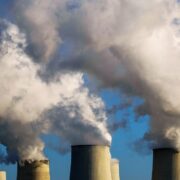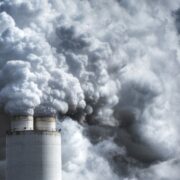How a Microbial Evolutionary Accident Changed Earth’s Atmosphere
An extra membrane that once had digestive functions let marine microbes boost their yield from photosynthesis. Today, they're responsible for locking carbon ..
An extra membrane that once had digestive functions let marine microbes boost their yield from photosynthesis. Today, they're responsible for locking carbon ..
Scientists just figured out that thousands of air quality stations have been accidentally gathering invaluable DNA data on local organisms. ..
Scientists are worried about the effect this change could have on orbiting satellites, the ozone layer, and Earth’s weather. ..
With new satellites and programs, the agency is tackling air quality from all angles—for the health of people and the planet. ..

If you want to know what the cloud of gas that surrounds the planet is really doing for us, you have to see what the world would be like without it. ..

A new study shows that the more divided a community is, the higher the residents’ exposure to hazardous metals and particulates. ..

Space fans around the world can help analyze data collected by the Mars Climate Sounder. ..

Big vessels spew sulfur, which brightens clouds to produce long “ship tracks.” These emissions cause environmental damage—but also help cool the planet. ..

Researchers say that the rising number of space launches around the world will warm parts of the atmosphere and thin the ozone layer. ..

In an exclusive interview, the military branch’s second in command talks about junk in orbit, cyberattacks, satellite vulnerabilities, and Russia's war in Ukraine. ..